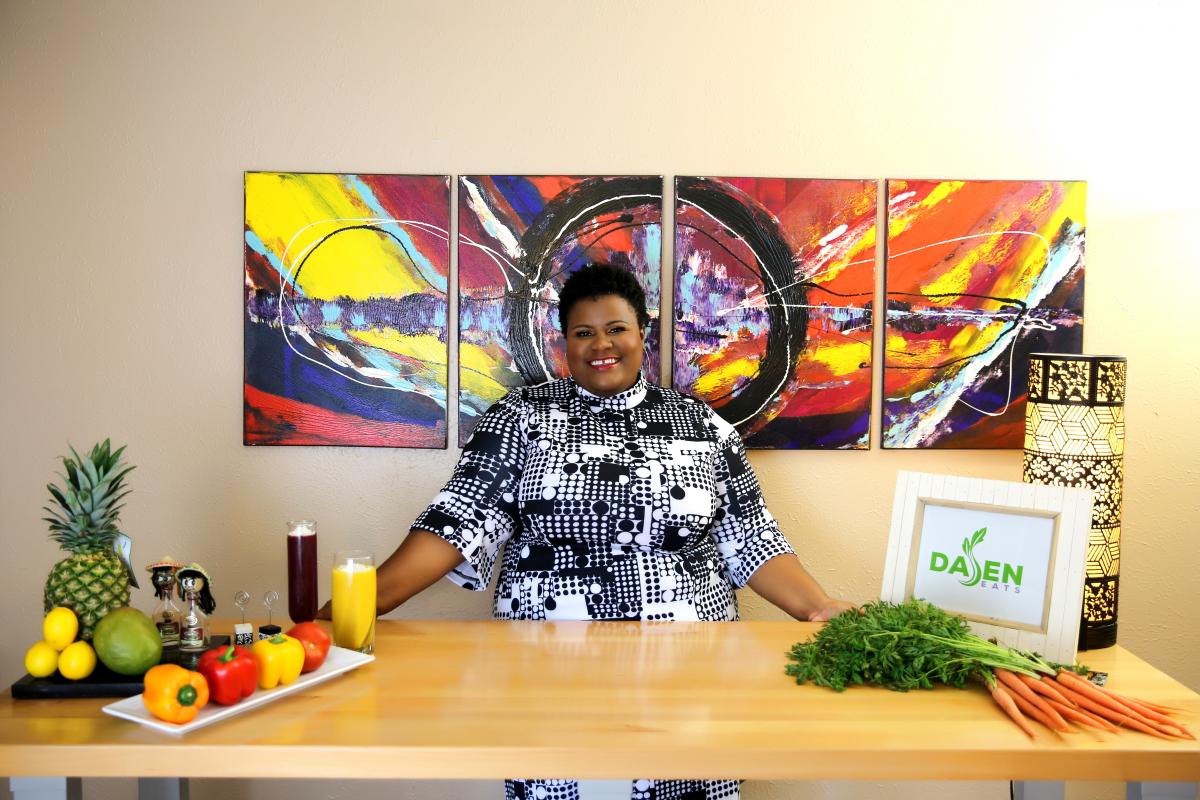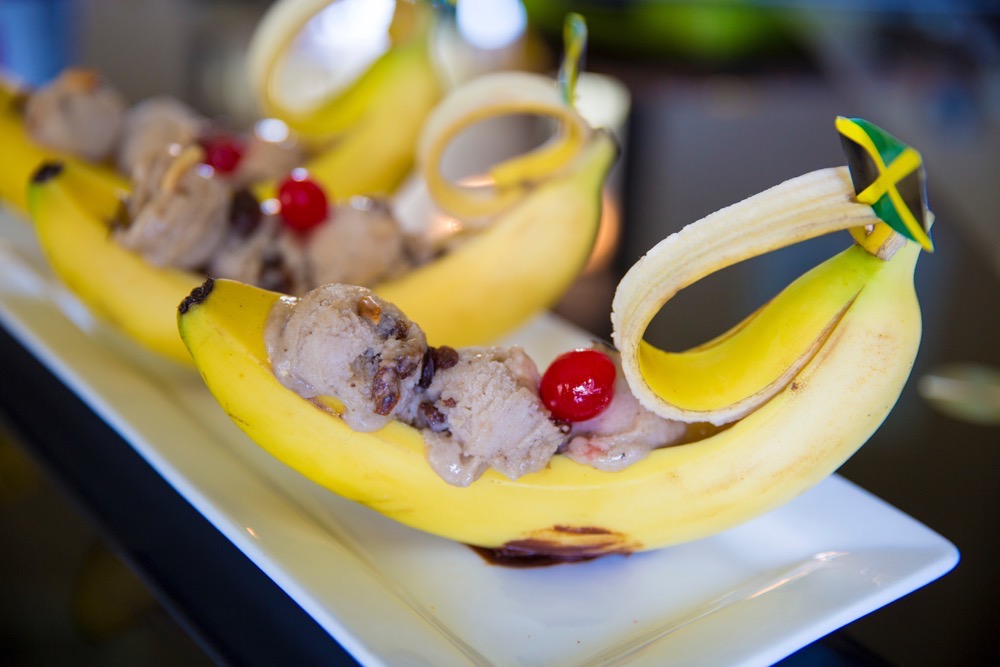A pint-sized Citgo gas station sounds like the least likely place to find fresh food and quality community. Until now. Vegan cafe and creamery DaJen Eats is surprisingly situated along the Orange Blossom Trail, in the small community of Oveido, Florida, where the remarkable woman behind the unconventional arrangement is changing the face of food.
Chef Jenn Ross, a Jamaican native with no restaurant experience, moved to America by herself at age sixteen. She is now the owner/force of nature behind DaJen Eats, and prides herself on redefining accessible, healthy food and female entrepreneurism in a primarily minority area with limited plant-based food options.
Jen’s food philosophy is informed by rich family memories, traditions and culture, so she is sensitive to the sense-memory and emotional ties that surround comfort food in the South. She speaks often of proving to the community that they can “honor their traditions through growth,” by teaching them how to navigate everything from the quicksand of food swamps to baking a head of cauliflower their kids will actually eat. Between leading community cooking courses and serving up her famous coconut-infused rice and red beans, she sat down to talk about the triumphs and trials of being a new business owner and introducing radical ideals to a new locale.

How did you start working in the food industry?
“Soul-searching. I wasn’t trained at all to work with food… I’ve never worked in a restaurant. I had a very corporate position and thought it was how I was supposed to use my talents to serve the world and be a good citizen, but then I realized we are much better citizens when we do things that make us happy… I just started from there without a single clue how to execute it.”
A cooking demonstration for the Vegetarians of Central Florida quickly led to group cooking classes and a website of recipes, but the community clamoured for more until she began offering a weekly meal service. She amusedly remembers that “They grabbed me by the shoulder and said ‘Jenn, can you put your food in a box, hand it to us, and we hand you money?’ What a novel idea!”

Now you’ve opened a vegan café in the middle of an often underserved area that is unfamiliar with plant-based food. What defines your menu and mission at DaJen Eats?
“Especially in the black community, we need healthy food. But I think once we start talking to people about healthy food they shut down, so we talk to them about comfort food... What we’re striving to do at the café and what I think would work well in other communities, is to meet people where they are. Instead of using some odd vegetable that they’ve never heard of, we incorporate that odd vegetable into a dish that they’re familiar with, so we’re not going against the learning curve. We wanted to show people that [vegan food] is approachable food. It’s the same things that you’re used to eating on any given day, just in a plant-powered, compassionate way.”
Jenn insists on adapting, rather than villainizing, the deep-set traditions that revolve around unsustainable and unhealthy food practices. Updating these rituals to be more responsible helps preserve and honour the personal and cultural histories so closely interwoven with gathering and eating so that they can stay relevant for generations to come.

What is the most memorable food tradition or dish that you’ve adapted?
“My grandmother always had Sunday dinner at her house. We had a big family, lots of kids…I don’t think she understands what it means to cook for a single person or two people. Even when all the kids left she would keep making these giant pots of food and would literally call people off the street to come and eat. I grew up in Jamaica, and for every special family occasion, if there was a wedding or a birthday party, there always has to be oxtail… Oxtail in Jamaica is such a big deal.”
“Hoxtail” is now Jenn’s signature dish, and she serves it every Sunday at the café’s aptly named “New Traditions Brunch” that has developed a cult following in the area.
What has been your biggest hurdle and greatest success as an entrepreneur?
“Our biggest hurdle was… We didn’t even know how much we didn’t know. We opened the café exactly one week after signing the lease, only because we had no idea what we were doing. There was nobody there to tell us ‘that’s exactly how it is not done.’ But that is tied to what I’m most proud of— because not knowing anything can cost you so much money, it can cost you so much time, so much heartache, so much disappointment—but we always found a way to rise to the occasion.”
She describes how people have embraced the café as a meeting place, volunteering everything from their family cake stands and folding chairs to books for her free lending library.
“I don’t even call them customers, they really are family. We don’t ask them for stuff… they come in and say ‘you should get another table; I’ll bring you one I’m not using.’ It’s such a point of pride and gratitude for us, knowing that the community has welcomed us in that way. I went on Facebook and said ‘hey guys, I did this crazy thing: I opened up a café in the middle of a gas station. We don’t have any tables and chairs but we’ll have chicken and waffles—you should come!”
DaJen Eats Café has grown from a quick comfort food concept to a true collage of lives and living rooms as Chef Jenn strives to educate and nourish the community by pedestrianizing sustainable, nutritive, delicious food. Her vision is an ambitious one, but if the winding and cheerful line at the latest Sunday brunch is any indication, the community is hungry for more.
by Sara Bond
The views expressed by our bloggers are not necessarily the views of The Vegan Society.


Comments
That's my girl.